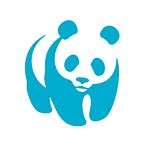Healthy freshwater ecosystems are fundamental to human rights to safe drinking water and sanitation
By Pedro Arrojo-Agudo, UN Special Rapporteur on the human rights to safe drinking water and sanitation, and Stuart Orr, WWF Global Freshwater Lead
Two big days coincide on 15 October. The first is the end of Phase 1 of the Convention on Biological Diversity’s COP15, the make-or-break nature conference that’s the last and best chance we have to put global biodiversity back on course to a healthy future.
The second is the International Day of Rural Women, which highlights the crucial role women and girls play in ensuring the sustainability of rural households and communities, improving livelihoods and overall wellbeing around the world.
At first sight there may not appear to be much connection between these two events — healthy ecosystems and sustainable development are both causes worth supporting, but they’re separate issues, right?
Well, no. Sometimes they’re two sides of the same coin — and as the new Report of the UN Special Rapporteur on the human rights to safe drinking water and sanitation demonstrates, this is never more true than when it comes to freshwater. It’s only by restoring the health of our freshwater ecosystems that we’ll be able to ensure supplies of the water we need for drinking and sanitation; and it’s only by making huge advances in our approach to sanitation that we’ll be able to save those systems in the first place.
As Sustainable Development Goal 6 makes clear, ‘access to water and sanitation for all’ is a fundamental human right. For now, in rich countries, we have a bathroom at home and can enjoy clean water by turning on the tap. But for people in the developing world the daily reality is very different. Not only are women and girls at risk of violence, including rape, because they have no safe space to relieve themselves, but they also bear most of the water and health burden in their families and communities — securing access to supplies of clean water can be a matter of life or death, and doing so is getting harder all the time, because quality water is ever further away.
Today, around 2.2 billion people lack guaranteed access to safe drinking water, 4.2 billion people live without access to a basic sanitation service, and almost 673 million practise open defecation with around 2 million deaths per year due to lack of safe drinking water and sanitation. Dirty water is a vector for disease and death.
The fact is, water, sanitation and hygiene (WASH) have become a touchpoint in the struggle for human rights. Partly this is due to the inequality and discrimination running through socioeconomic systems, where the poor and vulnerable are routinely deprived of the water resources they need. Partly it’s due to the state of the resources themselves.
Freshwater ecosystems — rivers, lakes and other wetlands — are the planet’s life support systems, but they’ve long been undervalued and overlooked. A third of our wetlands have disappeared since 1970, and two-thirds of our major rivers no longer flow freely. Pollution from agriculture, industry and domestic sources is choking our waterways, where 80% of wastewater is dumped untreated. Massive deforestation and agricultural expansion are destroying freshwater ecosystems.
Meanwhile unsustainable extraction from aquifers — nature’s water lungs, which can provide us with strategic reserves in the face of the foreseeable droughts that climate change will aggravate — ruins base flows, upsets the natural regulation of the water cycle and makes us more vulnerable to climate change, putting even drinking water supplies at risk during droughts.
All in all, it’s shocking but perhaps not surprising that aquatic biodiversity levels — the best indicators we have of freshwater ecosystem health — have collapsed by 84% in the last 50 years.
If we can’t sustain our freshwater ecosystems, they will no longer be able to sustain us — and as the latest report from the IPCC has made clear, as the planet warms the pressures they’re under are getting worse.
It’s only by making decisive progress in restoring the health of aquatic ecosystems that the fulfilment of the human rights to safe drinking water and sanitation of people living in poverty can be achieved.
With that truth in mind, COP15 must incorporate ambitious targets for freshwater into the new global framework for nature, and then we must take serious steps to hit them — by integrating ecosystem management and WASH goals together into a new socio-environmental approach. The restoration of freshwater ecosystems and democratic water governance must be targeted together, to ensure our common water resources have a sustainable future and in order to share those resources equitably at all levels of global society.
The world is waiting: now it’s time to come together and act.
